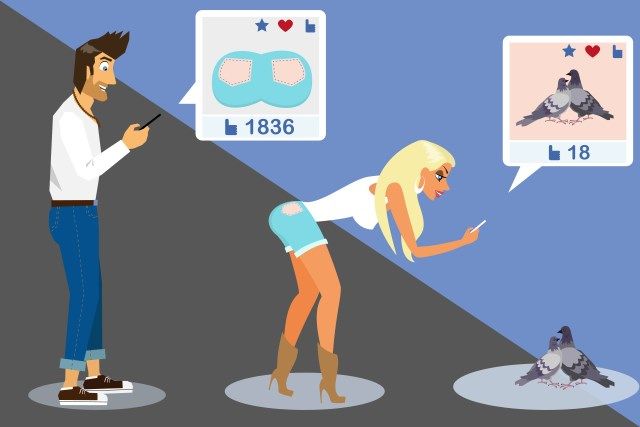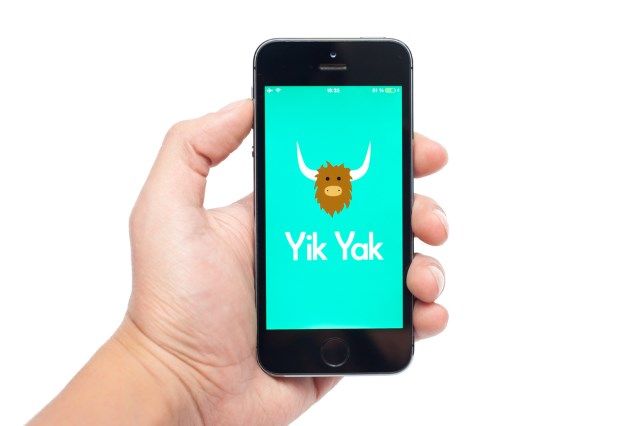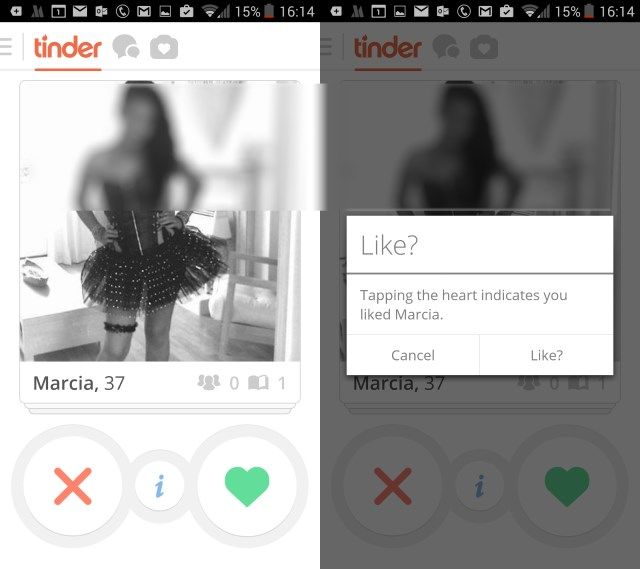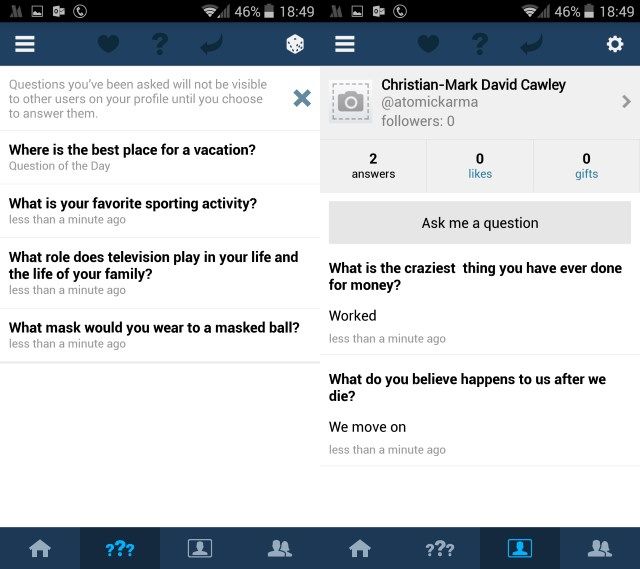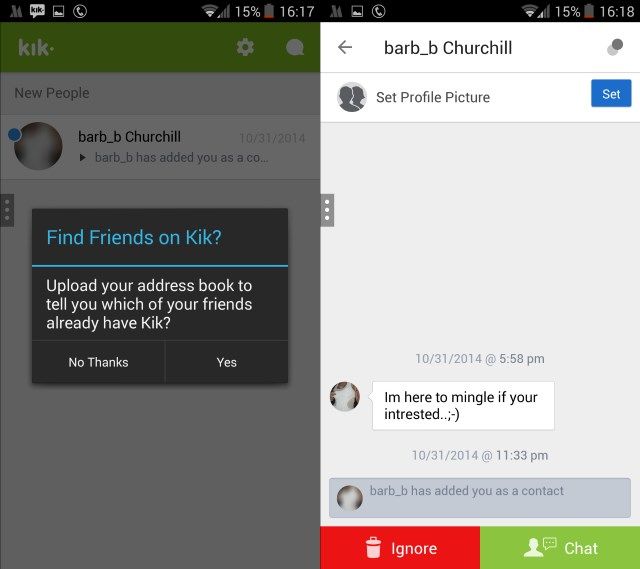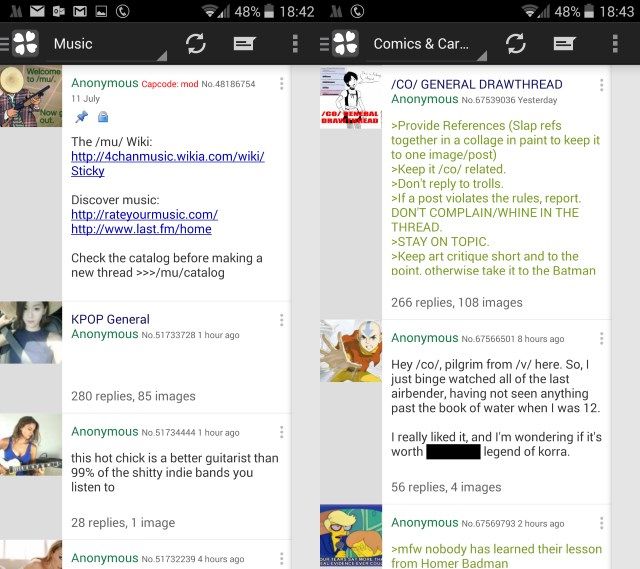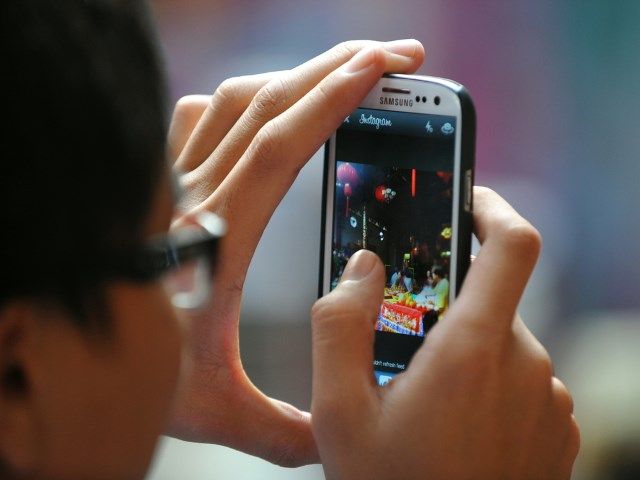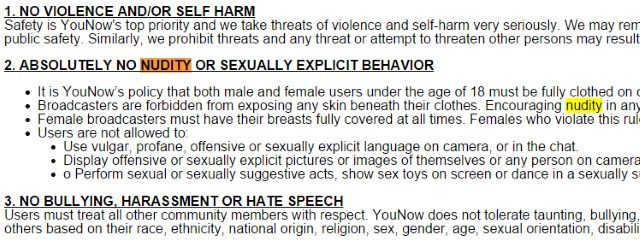Your children have become proto-adults, beginning to grow up. Like their friends, they spend a lot of time using smartphones, tablets and computers in a way you could only dream of.
While you're busy trying to deal with Facebook and Twitter, the teenagers in your life are busy sending messages and photos of themselves. Some of the content they're sending might just be the sort of thing to make them blush if you found out.
It's time to get concerned, and take control. Various services and apps purport to offer privacy, or claim that they are aimed at adults, but really fail to live up to these claims. Teenagers around the world are using Snapchat, Instagram, 4chan, Yik Yak, Tinder and more, none of which they should really be handling without parental approval.
In total, we've identified ten apps that you should speak to your kids about, and suggest that their friends' parents do the same.
Snapchat
"Infamous" is probably the best word to describe Snapchat, an app intended for over 12s according to Apple's App Store and with a poor reputation for sending auto-deleted sex-related messages and photos between contacts.
This is certainly not a service you should be happy for your children to be using, even if those images are deleted. You may have heard already that such snaps can be retrieved by third party apps on the recipients' phones, and there has been at least one case of such a service leaking the "deleted" images onto the web.
Children and teenagers using Snapchat should really be discouraged from doing so. If they're using any third party Snapchat photo-saving apps, these should be uninstalled and the Snapchat password reset.
Yik Yak
A social app used by teenagers that is enjoying some increasing attention in the press at present, Yik Yak is basically the key to cyberbullying.
Enabling users to create anonymous ad hoc online social chat rooms (like a local bulletin board) of as many as 500 users – linked only by geographical location – Yik Yak has moderation in place, but it is entirely controlled by the users.
Presumably, 500 anonymous teenagers.
Although a 17+ age rating is specified, this isn't enforced and the app is free, so no over-18/21 credit card is required.
The cause of various headline-making pranks thanks to its anonymous posting, Yik Yak is an aberration. Are your teenagers using it? Perhaps it's time to engage them with other activities, if only to spend some time pointing out that better ways to communicate exist than resorting to Yik Yak.
Tinder
"This is a dating site!" I hear you say. "Why on earth would children be using Tinder?" It's a very good question.
Looking into this, I've discovered that - bizarrely - the minimum age of use is 13 years, with UK newspaper The Independent recently asserting a considerable 7% of its users are 13-17 years old. Of concern is that way the app integrates with Facebook's login system to gain age information (which can be easily falsified on Facebook) and the bully-baiting "feature" of upvoting and downvoting a profile photo based on the subject's physical appearance.
Dealing with Tinder is in theory tough, but think of it this way: there is no reasonable cause for a teenager to be using a face-rating/flirting/dating site for adults.
Ask.fm
"How old are you?" "What's your name?" "Are you a virgin?" These are all typical questions that can be found on Ask.fm, ostensibly a social Q&A site which is in fact something far more insidious.
For a start off, the questions can be posted anonymously (Facebook, Twitter and VKontakte login options are available). Worringly, the answers are posted to the user's profile and easily cross-posted to other services.
As clued-up adults, the obvious thing to do in such a situation would be to ignore the questions. Teenagers don't tend to do this, however. Thanks to its lax attitude to personal privacy, Ask.fm has added an option to block anonymous questions, due in no small part to a suicide believed to have been caused by cyberbullying.
In short, this is isn't a service your teenagers, your precious offspring, should be using.
Teenagers love to tweet. So it is hardly surprising that photos and facts shared on the social microblogging service can be used and abused by cyberbullies and other unpleasant types.
With no minimum age now specified and certainly not enforced, Twitter users are getting younger and with the ability to take photos with their smartphones, sharing selfies and other personal information such as their name and location. A quick search of the #selfie hashtag will reveal young people naively sharing their faces.
Twitter privacy settings are the answer here, accessible via Settings > Privacy. Enabling Tweet privacy and ensuring that Tweet location is disabled is a start, while disabling Discoverability will block a user being found by searching for an email address. Setting a suitable Photo Tagging option (preferably Do not allow) should also help protect the privacy of your teen.
Kik Messenger
Available as a messaging app for iOS and Android, this 17+ rated app offers nothing in the way of age verification.
As a free app, this means that teenagers can download it to chat easily with their friends from the comfort of a smartphone or tablet, and the service supports one to one and group messaging.
So far, so good? Well, publicly shared usernames can be messaged by strangers. Several cases of paedophiles contacting underaged users on Kik Messenger have been reported.
With nothing to prevent children from downloading this popular app, the best solution here is to explain the risks and insist that usernames are not made public. Kik itself offers a "New People" list where messages from new contacts are dropped, from which point they can be blocked/deleted/added, but this really is too little for any parent to feel safe about their child using this app.
4chan
You've probably heard of 4chan. He was the guy responsible for the leaks of celebrity nudes online recently.
Except, of course, 4chan isn't a he, she or even it. It's an online community, virtually anonymous (which is why some of those claiming to be Anonymous can be found there) and offers a bizarre combination of libertarianism, socialism and nudity – and that's just the main channel. A fast-moving old-style bulletin board accessible via several apps (such as Clover, Leaf and others), 4chan content doesn't last too long and has channels to cover almost any interest you can think of. This isn't the only problem, however, and nor is the fact that no registration is required to post or view material.
Rather, the problem is the culture. A programming-inclined teenager could find themselves being suckered into hacking someone, doxxing an unsuspecting target or even – potentially – taking part in developing malicious code intended to cause chaos on a website, service or even within a government department.
A surprising addition to this list, perhaps, but Instagram – the friendly, hipster photos-with-filters sharing site now owned by Facebook – is a place where teenagers and young adults regularly upload snaps.
With the news that a recent study has found Instagram to be the most popular social network among US teenagers, now is probably the time to point out that the service doesn't yet use the secure HTTPS protocol. Essentially, activity on the site is conducted over a standard connection rather than a secure, encrypted one.
Account hijacking is thus made simpler.
As a parent you can suggest that your children take note of the privacy options in Instagram. These can be found by displaying the user profile opening Edit your profile and switching the Posts are Private option from the default off to On.
Photos will now only be shown to followers rather than shared publically. Additionally, any new followers must have their requests approved.
YouNow
We know, you probably haven't heard of this. YouNow (www.younow.com) is essentially a live YouTube (as you might have guessed from the name) and it's taking teenage social networking by storm with its trendy name, youthful-looking demo actors and easy to use apps.
It's an unknown quantity, too, which makes it potentially dangerous. Requiring nothing in the way of identification, registration or age verification, anyone can broadcast, and those watching can offer questions.
Any questions they like.
Worryingly, this is when the idea of privacy falls apart, as broadcasters start to share their names, ages, locations, and so forth. While YouNow specifies in its guidelines that nudity and explicit content are disallowed, young people of both sexes are regularly found flashing underwear or flesh in response to questions and comments.
As if this wasn't bad enough, YouNow has also become a hub of dangerous dares and online bullying, and its mobile apps (which we certainly won't link to) enable young people to take the madness with them.
There is no fix for YouNow, unfortunately, other than to lobby them to make an effort in dealing with these issues. Until then you can use parental control tools to take control of the apps your children install on their mobile devices, ensuring YouNow isn't accessible, and employ something like Care4Teen to control access on home desktops. This might seem extreme, but the consequences of not doing so are far worse.
Surely some mistake? Did we really include Facebook in our list of apps that can breach the privacy of your children?
Well, yes. To an extent. You see, the thing is, when it comes to Facebook, strong security features are in place that can protect a child's privacy, which is a very good thing. Unfortunately, there is also a dearth of young people between 13 and 18 on Facebook. Why?
Because you're on Facebook. Your embarrassing presence on Facebook has forced your teenager away from the social network, which is increasingly becoming an online establishment in the eyes of the young people. Throw in the concept of Facebook accounts for teenagers - social networking with stabilisers to some - and it's clear that teens are more interested in services that are perceived to be more secure and private - and parent free!
So, what can we do about this? Well, the first thing is to explain that Facebook is actually a good option compared to those we've featured above. It certainly isn't perfect, but if your offspring are going to have an online social life then they should be doing so safely, and the place to do that is Facebook, and they can start by checking our guide to Facebook privacy for teenagers. Youngsters can also ensure they're not sharing their Facebook posts publicly,
Dangers Exist In These Apps: What Will You Do About It?
Each of the apps listed here offers a privacy threat to a young adult, someone maturing into an adult. It's safe to say that the ease with which privacy can be submitted to these apps will seem normal, as is the way in which certain images can be shared.
We know, this is a minefield.
What we've shared with you here isn't intended to scare you. We want you to discuss, below, what approaches you will use to deal with these threats, apps whose ease of use means that it is ridiculously simple to share a potentially embarrassing photo online.
Content put online in 2000 can still be found now. Services such as the Wayback Machine make this possible. Facebook and Twitter posts from 2007 can be found a little more easily, and it is likely that your teenagers will be able to find stuff posted by them and their friends in another seven or 14 years' time.
Is this something that they should be worried about while dealing with promotions, marriage, starting a family and other adult responsibilities? We don't think so, and neither should you.
Let the conversation begin. It's time to solve this thing.
Featured Image Credit: Outdoor portrait of group of friends taking photos with a smartphone via Shutterstock, Guy is taking a snapshot of blond woman via Shutterstock, Yik Yak via Shutterstock. Twitter via Shutterstock, Vdovichenko Denis / Shutterstock.com, PiXXart / Shutterstock.com, 1000 Words / Shutterstock.com, Ttatty / Shutterstock.com


